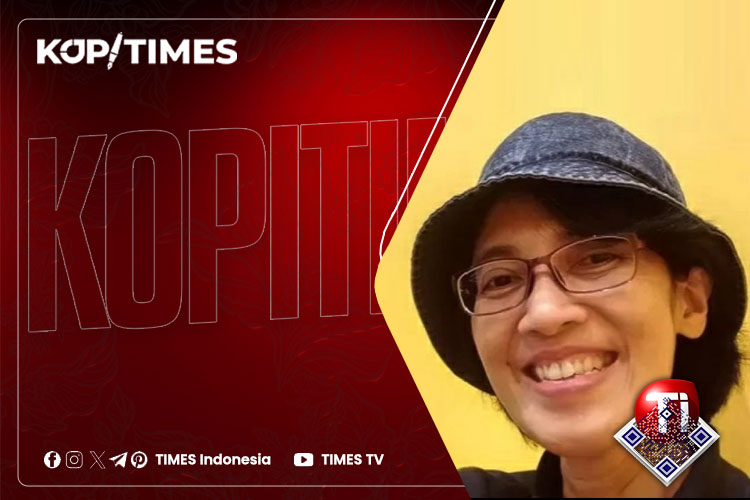
TIMESINDONESIA, YOGYAKARTA – An excellent business is one that consistently practices continuous plan-do-check-action and sustainability. It is built on perseverance, starting from modeling to continuous synergy across all departments.
Business organizations need to be built with strong systems and cultures that are constantly updated to follow developments (Jones, 2013). This requires resilient entrepreneurs who are not easily discouraged and continuously willing to learn.
Success in business is often measured differently, as there is no consensus between academics and practitioners in defining it. Objective measures can include the number of employees and customers, continuity, absence of closure indications, good stocks, and performance based on profitability and revenue (Hasan et al., 2020; Ephrem et al., 2021).
Meanwhile, subjective measures refer to entrepreneurs' feelings about their overall situation, such as personal needs fulfillment, recognition and social contribution, goal achievement, life satisfaction, and work-life balance (Manzano-Garcia & Ayala-Calvo, 2020).
Entrepreneurial work demands creating new ventures and sustaining them. Entrepreneurs face daunting challenges, competitive environments, and the looming risk of failure, which can affect their performance, satisfaction, and well-being, thus reducing their survival potential.
These challenges are often encountered by micro-entrepreneurs in developing countries like Indonesia. Most challenges faced by entrepreneurs are external, such as economic conditions, public health, political turmoil, which are beyond entrepreneurs' control. Entrepreneurs' ability to meet entrepreneurial demands plays a crucial role in achieving success.
There are two important intangible resources available to entrepreneurs: psychological capital and social capital (Baluku et al., 2018). Both resources are believed to help and support challenging entrepreneurial roles, thereby increasing their chances of success.
According to Luthans & Youssef-Morgan (2017), psychological capital includes hope, efficacy, resilience, and optimism. Without these psychological resources, it's difficult for entrepreneurs to achieve their goals, especially excellence. When managed well, psychological capital can surpass what entrepreneurs possess, including financial, human capital, and even social capital.
Psychological capital is generally related to positive work attitudes, excellent performance, and well-being in work situations (Chen et al., 2017; Kim et al., 2017). Meanwhile, social capital refers to social work networks among entrepreneurs and how often they cooperate. The quantity of networks, the number of entrepreneur contacts, network strength, frequency of contact between entrepreneurs and network members, and the level of trust/support among organization members all have a significant positive influence on organizational entrepreneurial performance (Ma et al., 2018).
During the COVID-19 pandemic, entrepreneurs need to change their business models and adopt remote work strategies. The sudden and dramatic crisis conditions with limited resources make it difficult for entrepreneurs to handle crises. Working from home is not a feasible option for all entrepreneurs; they must redirect their existing knowledge and find innovative ways to reduce pandemic-induced complications.
Small and medium-sized business owners and leaders must have emergency plans to deal with crises and prevent delays in crisis recovery. The attitudes of leaders and crisis intervention strategies applied during previous crises significantly affect their decisions.
In general, small business owners and leaders are always faced with resource constraints and costs in unforeseen scenarios, making it difficult for them to effectively handle crises. They must be able to create adaptive business strategies by fostering workplace resilience, enabling them to overcome crisis losses and enhance sustainability.
Entrepreneurs are truly faced with unprecedented challenges. Therefore, analyzing challenges in every aspect is crucial to understand the extent of pandemic impacts. Entrepreneurs who use their intuition to overcome crisis-induced deficiencies are more successful in surviving compared to those using conventional methods.
Hence, the psychological conditions of entrepreneurs help them recognize the need to implement solutions requiring minimal working capital. They utilize existing mental and physical resources to implement crisis intervention strategies during the COVID-19 pandemic to sustain their businesses.
Entrepreneurs state that strong cooperation between employees and themselves is crucial to surviving the COVID-19 crisis. Belief in this collective strength seems to be ingrained in entrepreneurs' mindsets.
Employees believe their leaders will guide them through the pandemic crisis. Therefore, entrepreneurs or leaders need to maintain a positive attitude, advocate transparency, and communicate company action plans to achieve success during the pandemic.
Positive reinforcement methods and verbal communication can create a supportive environment in the company that guides employees confidently through crises and towards company goals (Walumbwa et al., 2010). This relational strength is often known as social capital. Social capital is a relational resource to help other employees with personal resource networks (Ghitulescu, 2013).
Social capital can foster social interaction and trust among individuals, thereby enhancing their adaptive capabilities. During crises, social capital is needed as a response to unexpected situations.
Meanwhile, psychological capital must also be built strongly to rise from the pandemic crisis, which is uncertain when it will end. The strong hope that must always be present can generate optimism to find the right actions and strategies to rise from the crisis. Realistic and actionable optimism will strengthen the mental or psychological conditions of business actors. Indonesia is a great nation that has experienced various challenges.
Struggles for independence, followed by conflicts between existing groups and due to the desires of various countries that still want to rule Indonesia. The global economic crisis in 1998, and various disasters such as earthquakes, tsunamis, and many more challenges, Indonesia managed to overcome them. Various struggles have proven that Indonesia can withstand crises (resilience). This is what makes us believe that we can emerge from the pandemic crisis, thus increasing self-efficacy. If we pursue these four components in an integrated manner, we can undoubtedly rise from the slump caused by the COVID-19 pandemic.
The business world certainly has similar experiences in struggling with various problems and limitations. These are the things that can increase the psychological capital of the business world in efforts to rise from the COVID-19 pandemic crisis. Based on research by experts, psychological capital can enhance individuals' adaptability (see, for example, Hicks & Knies, 2015; Luo et al., 2021; Pajic et al., 2018; Safavi & Bouzari, 2019). Psychological capital can create positive emotions that allow entrepreneurs to evaluate crises positively (Luthans et al., 2007).
During the pandemic, entrepreneurs are likely influenced by psychological capital, allowing them to explore various paths to reduce negative impacts by setting goals (hope), persevering in crisis conditions by having confidence in their abilities (resilience and efficacy), and not losing sight of the bigger picture because this pandemic is temporary (optimism). Psychological capital not only helps overcome the pandemic but also encourages exploring new opportunities by following the market and awaiting a promising future.
The importance of relationships among entrepreneurs and how entrepreneurs utilize their psychological and behavioral resources to enhance survival abilities during crises have been highlighted in the literature (Dixon et al., 2017). Luthans et al. (2007) assert that individuals with higher levels of psychological capital are better at overcoming barriers and challenges brought by crises.
Despite setbacks, the resilience of psychological capital keeps individuals motivated. The strength of psychological capital in entrepreneurs enables them to strengthen relationships with employees, which increases employee commitment and encourages creativity and innovation.
The intangible resources inherent in entrepreneurs facilitate recognizing opportunities, decision-making, business negotiation, stress management, resource utilization, and dealing with different stakeholders, which are essential tasks of entrepreneurs leading to success. Moreover, stronger psychological and social capital also increases the likelihood of survival in entrepreneurial roles.
The ability to remain optimistic, hopeful, resilient, and confident, as well as the ability to interact effectively with others, are ways to survive in entrepreneurial activities. Supporting entrepreneurs to strengthen their psychological and social competencies is crucial to promoting successful entrepreneurship.
***
*) Oleh : Dorothea Wahyu Ariani, Student of Management Study Program, Faculty of Economics, Mercu Buana University Yogyakarta.
*) Tulisan Opini ini sepenuhnya adalah tanggung jawab penulis, tidak menjadi bagian tanggung jawab redaksi timesindonesia.co.id
*) Kopi TIMES atau rubrik opini di TIMES Indonesia terbuka untuk umum. Panjang naskah maksimal 4.000 karakter atau sekitar 600 kata. Sertakan riwayat hidup singkat beserta Foto diri dan nomor telepon yang bisa dihubungi.
*) Naskah dikirim ke alamat e-mail: [email protected]
*) Redaksi berhak tidak menayangkan opini yang dikirim apabila tidak sesuai dengan kaidah dan filosofi TIMES Indonesia.
*) Ikuti berita terbaru TIMES Indonesia di Google News klik link ini dan jangan lupa di follow.
**) Ikuti berita terbaru TIMES Indonesia di Google News klik link ini dan jangan lupa di follow.
Advertisement
| Editor | : Hainorrahman |
| Publisher | : Rizal Dani |


